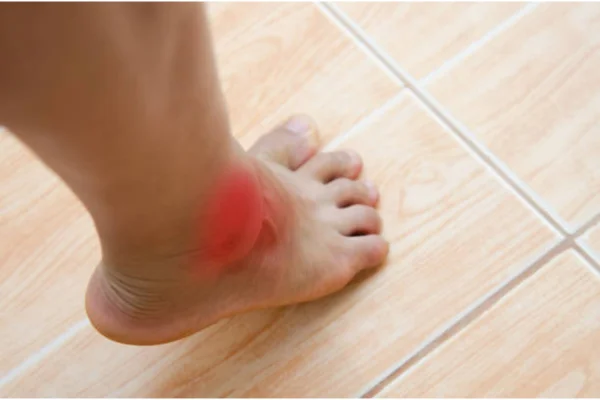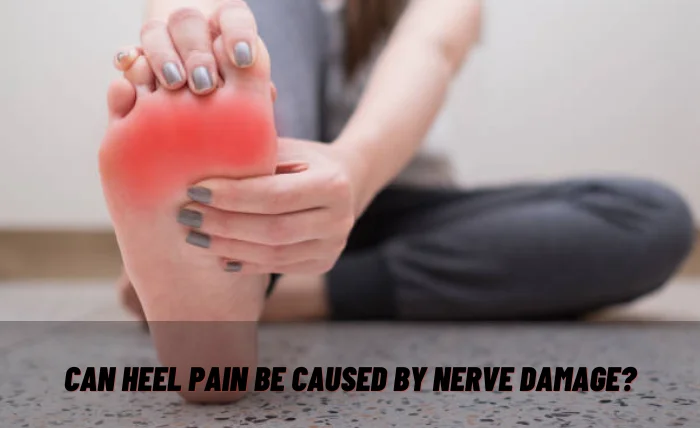Heel pain is a common complaint, often attributed to overuse or improper footwear. However, the story doesn’t end there. Surprisingly, nerve damage can also play the villain behind the scenes, causing discomfort that keeps you off your feet. This lesser-known cause brings a twist to the narrative of heel pain, offering new perspectives on diagnosis and treatment. Imagine walking without that nagging pain – understanding the role of nerve damage could be your first step.
Dive into the world of heel pain, where medical science sheds light on unexpected culprits, and learn how nerve damage might be the key to unlocking relief. This exploration promises insights that could change the way we think about and tackle heel pain, making it a must-read for anyone seeking solutions beyond the conventional.
Can Heel Pain Be Caused By Nerve Damage

Heel pain is a symptom that can arise from various conditions affecting the foot’s structure and function. It can manifest as a sharp, stabbing sensation, or a dull, chronic ache, significantly impacting an individual’s quality of life by limiting mobility and daily activities.
Common Causes of Heel Pain
- Plantar Fasciitis: Inflammation of the plantar fascia, a thick band of tissue that runs across the bottom of your foot and connects your heel bone to your toes.
- Achilles Tendinitis: Inflammation of the Achilles tendon, the tendon linking your calf muscles to your heel.
- Heel Spurs: Calcium deposits that form on the underside of the heel bone.
- Bursitis: Inflammation of the bursa, a fluid-filled sac that reduces friction between tissues of the body.
Nerve Damage and Heel Pain
Nerve damage, or neuropathy, affecting the feet can lead to heel pain. This condition involves the malfunctioning of nerves due to injury or disease, resulting in pain, numbness, and weakness in the affected area.
Types of Nerve Damage Leading to Heel Pain
- Tarsal Tunnel Syndrome: A condition similar to carpal tunnel syndrome of the wrist, but it occurs in the tarsal tunnel, a narrow space inside the ankle.
- Peripheral Neuropathy: Often associated with diabetes, this condition affects the peripheral nerves, potentially causing pain in the heels and other parts of the foot.
- Baxter’s Neuropathy: Involves compression of the first branch of the lateral plantar nerve, leading to heel pain.
Diagnosing Heel Pain Caused by Nerve Damage
Diagnosis involves a comprehensive evaluation by a healthcare professional, including a physical examination, patient history, and possibly imaging tests such as MRI or nerve conduction studies to pinpoint the exact cause of pain.
Treatment and Management
Treatment strategies for heel pain caused by nerve damage focus on relieving symptoms and addressing the underlying condition. Options include:
- Medications: Anti-inflammatory drugs or pain relievers to manage symptoms.
- Physical Therapy: Exercises to strengthen the foot and improve flexibility.
- Orthotic Devices: Custom-made or over-the-counter shoe inserts to alleviate pressure and distribute weight evenly.
- Surgery: In severe cases, surgical intervention may be necessary to relieve compressed nerves or correct anatomical issues.
Prevention and Self-Care
Preventive measures and self-care are crucial in managing heel pain and preventing further nerve damage. These include:
- Proper Footwear: Shoes that support the arch and cushion the heel.
- Weight Management: Maintaining a healthy weight to reduce stress on the feet.
- Regular Exercise: Low-impact exercises to strengthen the feet and legs without adding strain.
Conclusion
Heel pain can indeed be caused by nerve damage, encompassing conditions like tarsal tunnel syndrome, peripheral neuropathy, and Baxter’s neuropathy. Understanding the symptoms and seeking timely diagnosis and treatment are essential for effective management and relief. By incorporating preventive measures and proper self-care, individuals can mitigate the impact of nerve-related heel pain on their daily lives.

